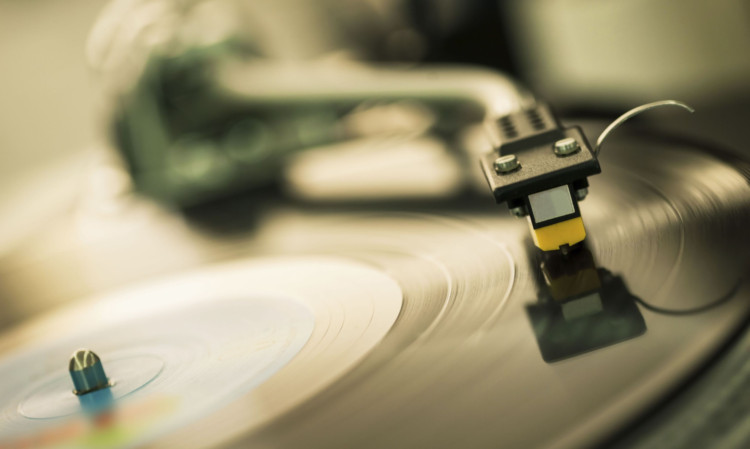As sales of vinyl records hit a 10-year high, Helen Brown discovers the reasons behind a renaissance in this retro listening style.
Vinyl has got its groove back. Sales are currently at a 10-year-high, with vinyl-version albums by David Bowie, Arctic Monkeys and Daft Punk driving demand past the half million mark for the first time in a decade and not only amongst nostalgia freaks of a certain age. A younger audience 35% of people who buy vinyl are under 35 and 15% under 24 is looking for something beyond the 24/7 availability of the digital age and turning to good, old-fashioned vinyl as the coolest, hottest new must-have.
Type “vinyl records” into Google and you’ll be offered sales pitches by everyone from Oxfam to eBay. In the UK, one in every eight vinyl albums bought is purchased from independent record stores whose sales are up over 100% in 2013.
Who’d have thought it? A format invented in 1948 still holding its own 65 years down the line. Of course, it’s possible to argue that vinyl has never really been away like rock ’n’ roll, it has never died.
Video never quite managed to polish off the radio star, after all, and certainly never led to the predicted demise of cinema. In the same way, MP3s, downloads and streaming may have dented, sidelined and scratched the surface of vinyl but they’ve never seen it off. And now, it would seem, it’s making the biggest comeback since David Bowie released his first album in 10 years with a vinyl version, of course.
Alastair “Breeks” Brodie has been selling vinyl in Dundee’s legendary independent, Groucho’s, for 37 years and never wrote it off. “I’m a great believer in playing music on the equipment it was made for I have a 1957 radiogram for mono records and for sixties 45s, there’s nothing like stacking them up on the old Dansette. CD is a great way to listen to classical music but for good old rock ’n’ roll, vinyl is great, crackly and real. There’s a difference between analogue and digital with digital you just get a representation of the sound. With analogue it’s richer. And there is definitely something about the smell and feel of a new record.
“We’re selling a lot more than we did a few years ago and things we couldn’t sell, like Fleetwood Mac’s Rumours and eighties stuff. We can’t get enough of those.
“People who sold off their vinyl collections are trying to buy back their memories and youngsters are attracted by the “cool” factor. We get fathers and sons coming in with the dads showing the boys a) what a record is and b) how to put it on. We sell a lot of new, retro-style record players!”
So is this new passion for an old flame fuelled by punters who want their music in solid, hands-on form or by the performers who reckon their sound and fury signifies a lot more when it’s on two sides of a wax pressing? The mighty Oasis, after all, claim the most popular vinyl release of the past two decades with (What’s the Story) Morning Glory.
A bit of both, it would seem. Johnny Lynch, singer, songwriter and recording artist under the name Pictish Trail, is also founder and director of Lost Map Records, established this year after Johnny spent 10 years as co-director of Anstruther’s Fence Records.
The label’s first release, Monoganon’s new album Family, is released on October 28 as a CD, download and 12-inch vinyl LP.
“Of course, there’s nostalgia, people wanting to re-enact the golden age of rock ’n’ roll. But our audience wants new music and there is absolutely a niche market for those wanting that on vinyl.
“It does sound better with a larger frequency range and more depth. And the surface noise of the needle on the record is part of the experience. It’s more visceral the music jumps out of the grooves at you, it’s like hearing it live.”
It’s also like the difference between renting music and buying it. “It’s making a commitment to the music you like. We have music on tap today, it’s all around us whenever and wherever we want it but actually making a choice, going out and taking the trouble to buy something is a leap of faith, it’s part of your personality.
“More and more people are actively deciding that a good music listening experience is better than convenience. And with music sales declining, they’re prepared to pay for it 20 quid or more for boxed vinyl sets. It doesn’t surprise me at all that vinyl is stronger than ever.
“There’s even a small label putting out music on cassette it’s a bit kitsch but why not?”
It doesn’t look as if there’s much chance of the vinyl countdown any time soon.
